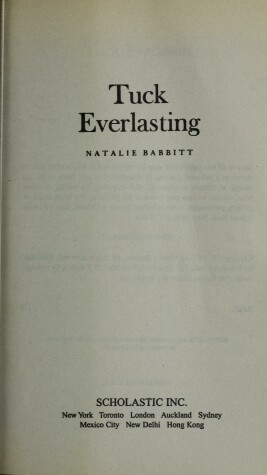
Briana @ Pages Unbound
Written on Jan 7, 2015
Having read the book, I’m not sure I see any particular connection between Winnie’s woods and the wood I’ve seen—which may be partially due to the passing of time and partially due to the fact that the book isn’t particularly very descriptive, about anything. All I really know is that there’s a spring in this woods and a path that goes around it but not through it. And lots of cows in the surrounding area, which is still true today. So, bereft of the pleasure of being able to say, “Yes! I know that tree!” (or whatever I was expecting), I was left having to consider the story on its own terms. Mostly I was bored.
I know that Tuck Everlasting is a very moving novel for many people. I’m sure it could have been for me, if I’d read it as a child. Its great power lies in asking the question: Would you want to live forever? And if I were ten, that would probably be a provocative topic. Since I’m older, I’ve already been asked that question myriad times, often in books that are more complex than Tuck. I appreciate that Tuck at least offers a variety of opinions, both on whether living forever is worthwhile and what one should do with all their time if they do happen to be immortal, but things were pretty simplistic.
I do recognize the book is for children. Also, I genuinely like to read many children’s books. However, this one is definitely a younger middle grade book. Everything is short and simple. Short sentences. Short chapters (sometimes only one page long). Things just happen in the book, without much background or later explanation. In one sense, that makes it tempting to say the book is plot-driven. But, in the end, I think it’s not. Because the story isn’t really the point; it’s mostly dressing for the author and reader to consider the major question of the pros and cons of immortality.
I’m glad I’ve read Tuck Everlasting; it’s definitely a modern classic in children’s literature. However, if I could make recommendations, I would suggest readers pick it up at as young an age of possible, so its message and questions will really seem new, and its simple prose will seem helpful rather than dull.
